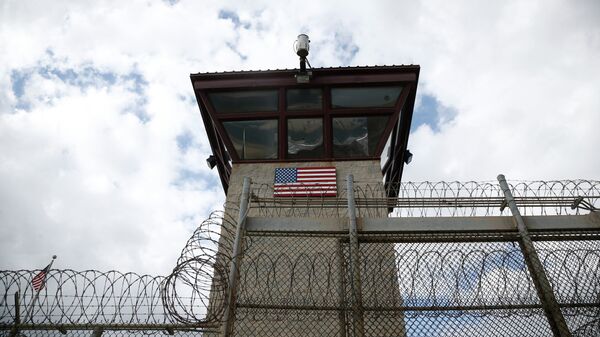The president’s admirable goal has, however, consistently run into roadblocks, as Republican lawmakers adamantly refuse to facilitate the closure of the torture center.
Obama’s original plan to transfer the prisoners from Guantanamo had no luck either, as state legislators and governors refused to allow the moves, despite a lack of evidence in most cases linking Gitmo prisoners to terror organizations. There have been calls for the prisoners to be transferred to other countries, but the arduous diplomatic process was thought to be unfeasible.
The White House has now announced the release of some 15 detainees to the United Arab Emirates, but many fear that the precedent set by the Bush White House will continue to allow for future US agencies to engage in similar programs of detention and torture.
On Wednesday, Loud & Clear’s Brian Becker sat down with Jeremy Varon, a professor at the New School and leader of the non-profit group Witness Against Torture, and Raha Wala of the Human Rights First organization to talk about the developments and dangers.
Why did the Obama Administration choose to do this?
"I mean above all, the transfer demonstrates at last the seriousness of the Obama Administration’s effort to make good on its day one promise of closing the prison," said Varon. "That goal may not be reached, but the administration is very intent on lowering the population by doing transfer diplomacy and finding places for the men at the prison to go, and some of them were brought there upon the advent of Guantanamo."
Is Guantanamo Bay a torture center as the UN has classified it?
"There is no doubt that a number of detainees who have been held at Guantanamo have been tortured. That program of so-called enhanced interrogation has been ended by the Obama Administration, but there are a number of troublesome practices that continue at the facility including the forced feeding of detainees at Guantanamo," stated Wala.
"The bigger picture here is that Guantanamo was established to be the legal equivalent of outer space. Where laws would not apply, where there would be no opportunity for detainees to access lawyers, no rights to a trial," said Wala. "By and large, throughout the years, Guantanamo has stood for the premise that you can hold people indefinitely at an offshore facility with little or no legal recourse."
Varon agreed that, while the closure of the Guantanamo Bay facility would be a great step toward reducing the practice of the American legitimization of torture, it does not legislatively prevent similar programs of detention and torture by the next administration.
"To underscore what my colleague said, indefinite detention is the law of the land and military commissions set up for terror suspects is a very real possibility in the future," said Varon. "So we can celebrate the diminishment of the population and tell ourselves that we are moving past that chapter but there is a pretty dangerous precedent, in terms of executive authority, that has been established under the executive and those have not been walked back by the Obama Administration."




